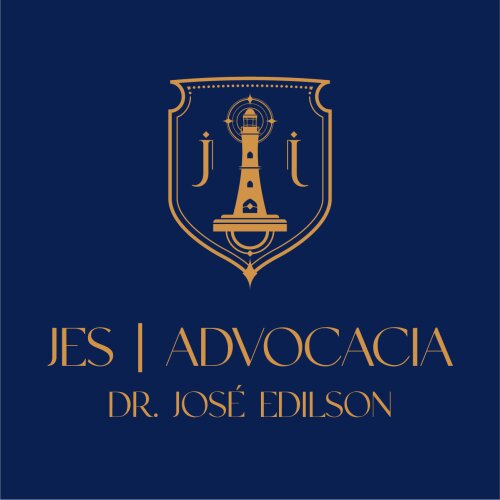Best Labor Law Lawyers in Santo Andre
Share your needs with us, get contacted by law firms.
Free. Takes 2 min.
List of the best lawyers in Santo Andre, Brazil
About Labor Law in Santo Andre, Brazil
Labor Law in Santo Andre is governed by both national and municipal regulations designed to protect the rights and duties of workers and employers. The Federal Constitution of Brazil and the Consolidation of Labor Laws (CLT - Consolidação das Leis do Trabalho) form the backbone of labor relations. Santo Andre, as part of the state of Sao Paulo, also adheres to regional practices and may offer specific programs or mediation services tailored to its local workforce. Labor Law covers topics like employment contracts, working hours, salaries, workplace safety, discrimination, and termination.
Why You May Need a Lawyer
People in Santo Andre may need legal advice in Labor Law for various reasons. Common situations include unfair dismissal, unpaid wages or benefits, workplace harassment, discrimination, disputes over employment contracts, and occupational accidents. Sometimes, employees need legal guidance to ensure their rights are not being violated. Employers may also require specialized advice to ensure compliance with local labor regulations, to draft clear contracts, and to handle conflict resolution. A lawyer can help negotiate settlements, represent you in court or administrative proceedings, and clarify your rights and obligations under the law.
Local Laws Overview
In Santo Andre, Labor Law operates within the national legal structure, but certain municipal programs and practices may affect local employment relationships. Notable points include:
- Employment Contracts: All employment engagements should have clear documentation outlining rights and duties.
- Working Hours: The standard workweek is 44 hours, with overtime rules strictly enforced.
- Minimum Wage: Employers must comply with the federal and, when applicable, higher state-mandated minimum wages.
- Paid Leave: Employees are entitled to vacation, maternity and paternity leave, sick leave, and holidays according to law.
- Termination and Severance: Specific procedures apply for dismissal, including notice periods and mandatory payments like FGTS (Guarantee Fund for Length of Service) and severance pay.
- Collective Bargaining: Labor unions play a significant role, and collective agreements often influence workplace terms in Santo Andre.
- Workplace Safety: Employers must follow regulations for occupational safety and provide adequate working conditions.
Frequently Asked Questions
What are my basic rights as an employee in Santo Andre?
All employees are entitled to fair wages, a formal contract, safe working conditions, weekly rest, paid holidays, and protection against arbitrary dismissal.
Can I be dismissed without cause?
Yes, but employers must follow proper procedures, including providing notice and paying applicable severance. Unlawful or discriminatory terminations can be challenged legally.
What should I do if my employer is not paying my salary?
You should first try to resolve the issue directly. If unresolved, you can file a complaint with the local labor court or seek legal assistance.
How much notice should I receive before being dismissed?
The law generally requires at least 30 days' notice, but this can vary depending on the employment contract and length of service.
What are the rules regarding overtime?
Overtime is compensated at a rate of at least 50 percent above the regular hourly wage. There are limits on the number of overtime hours per day and week.
Are domestic workers protected by Labor Law?
Yes, domestic workers, such as housekeepers, are entitled to most of the same rights as other employees, including a formal contract and social security.
How can I report workplace harassment or discrimination?
You can report incidents to your company's human resources department, file a complaint with the Ministry of Labor, or take legal action with the help of a lawyer.
Do I have the right to unionize in Santo Andre?
Yes, all workers have the right to join or form labor unions. Unions play a critical role in representing employees' interests in negotiations with employers.
What benefits am I entitled to if I am injured at work?
Workers injured at work may be entitled to medical care, compensation for lost wages, and job protection during recovery, depending on the case.
How long do I have to file a labor claim?
Generally, labor claims must be filed within two years after the end of the employment relationship, covering rights accrued for up to five years prior to filing.
Additional Resources
- Regional Labor Court of the 2nd Region (TRT-2) - Handles labor disputes in Sao Paulo, including Santo Andre.
- Ministry of Labor and Employment (Ministério do Trabalho e Emprego) - Offers regulatory oversight and complaint mechanisms.
- Sindicato dos Trabalhadores - Local labor unions provide collective support and legal assistance for specific worker categories.
- OAB Santo Andre - The local chapter of the Brazilian Bar Association can help you find qualified labor lawyers.
- Procon Santo Andre - Consumer protection agency, often a starting point for workplace grievances that intersect with consumer rights.
Next Steps
If you believe your labor rights have been violated in Santo Andre, begin by gathering all relevant documentation, such as contracts, payslips, and correspondence. Attempt to resolve the matter internally with your employer, if possible. If you do not reach a satisfactory solution, consult a specialized labor lawyer who can review your case and recommend the best course of action. You may also reach out to local labor unions or relevant governmental bodies for support. Always act promptly, as there are legal time limits to assert your rights.
Lawzana helps you find the best lawyers and law firms in Santo Andre through a curated and pre-screened list of qualified legal professionals. Our platform offers rankings and detailed profiles of attorneys and law firms, allowing you to compare based on practice areas, including Labor Law, experience, and client feedback.
Each profile includes a description of the firm's areas of practice, client reviews, team members and partners, year of establishment, spoken languages, office locations, contact information, social media presence, and any published articles or resources. Most firms on our platform speak English and are experienced in both local and international legal matters.
Get a quote from top-rated law firms in Santo Andre, Brazil — quickly, securely, and without unnecessary hassle.
Disclaimer:
The information provided on this page is for general informational purposes only and does not constitute legal advice. While we strive to ensure the accuracy and relevance of the content, legal information may change over time, and interpretations of the law can vary. You should always consult with a qualified legal professional for advice specific to your situation.
We disclaim all liability for actions taken or not taken based on the content of this page. If you believe any information is incorrect or outdated, please contact us, and we will review and update it where appropriate.













